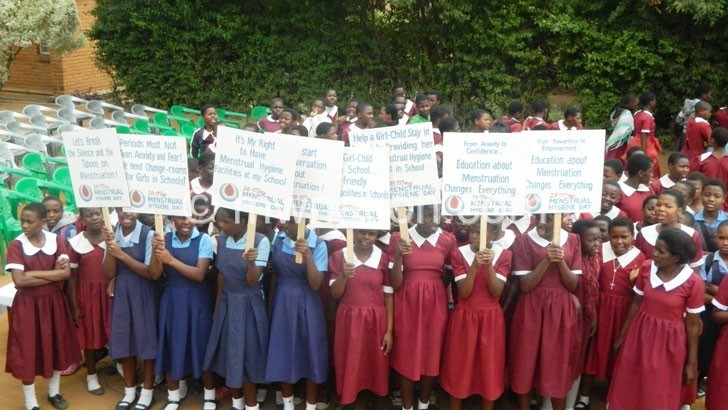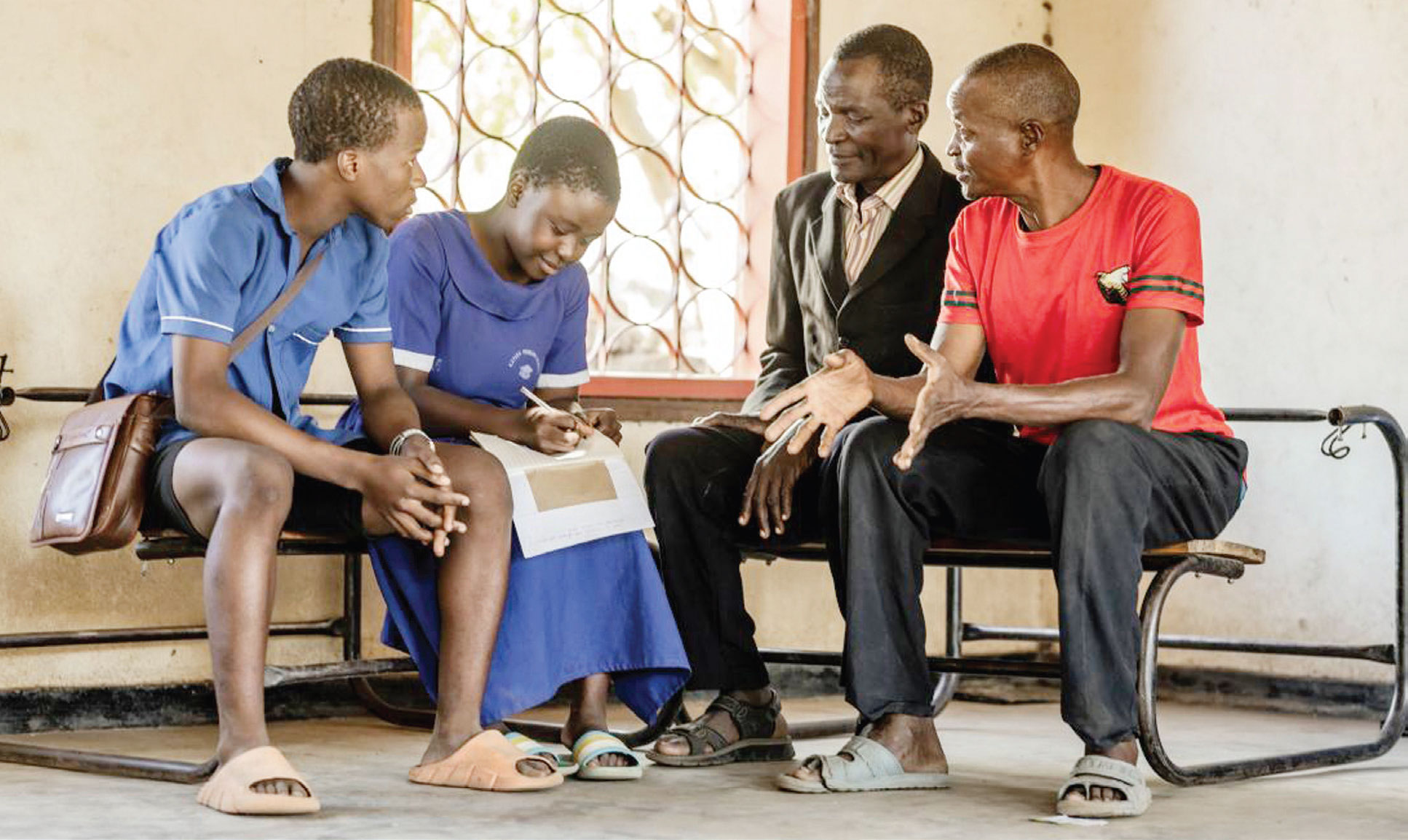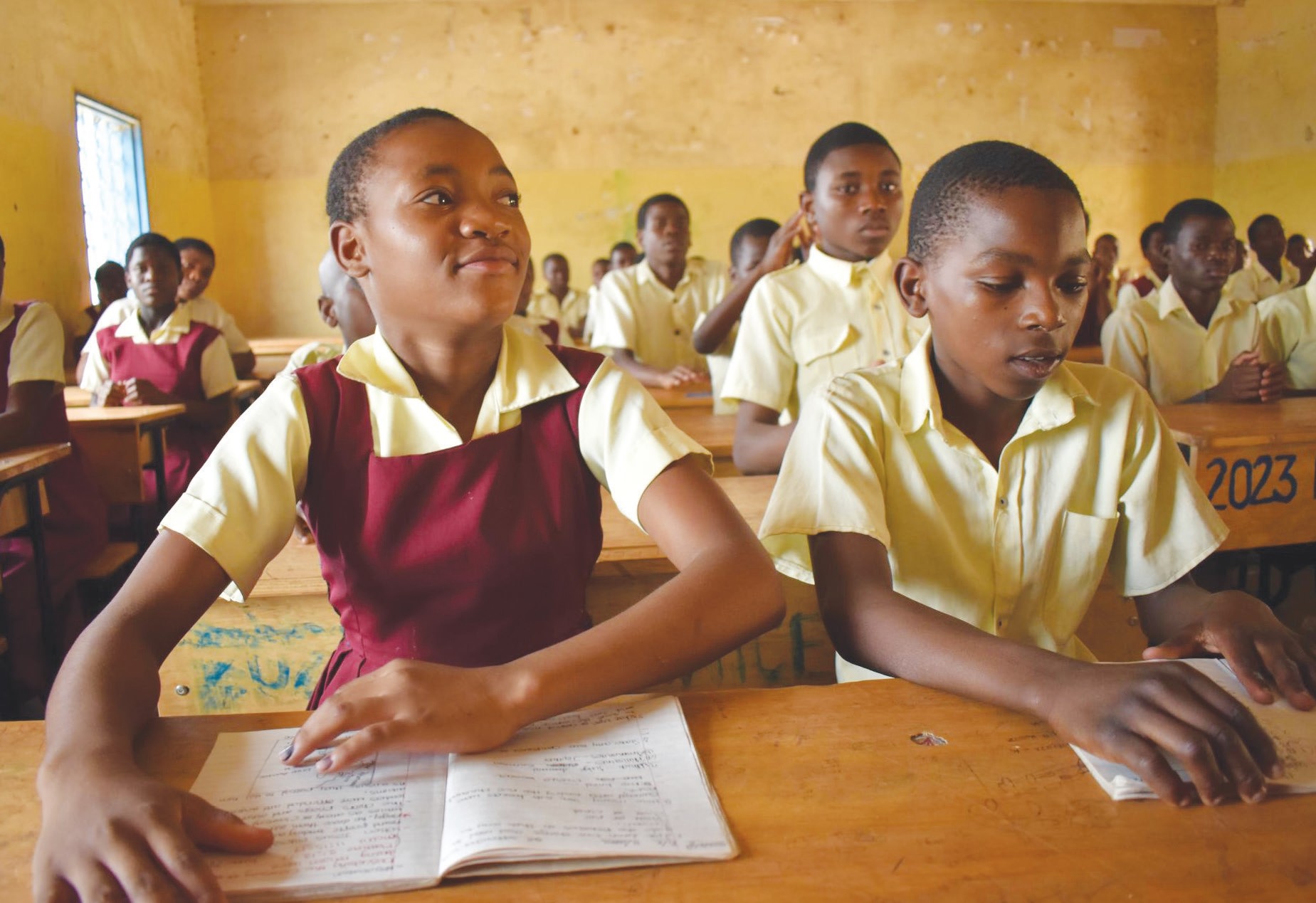Menstrual education changes everything
It is Tuesday. Pupils have gathered at Chimwankhunda Primary School to commemorate the World Menstrual Hygiene Day.
Discussing sexual issues with children remains a taboo, but the May 28 observance is breaking the culture of silence to ensure every girl learns.

Some pupils are carrying placards amplifying their muted demands: “Help a girl-child thrive in school by providing her with menstrual hygiene”, “Periods must not mean anxiety and fear!”, “We need change rooms for girls in schools” and “Let’s start the conversation about menstruation”.
Opening up
Around 10am, Kitty Chapambali, the director of ceremonies and deputy head teacher at Chimwankhunda, signals the pupils to keep quiet. The event is about to start.
But most teachers are visibly astonished by her openness on menstruation and menstrual hygiene. She does not beat about the bush.
“Kodi ndani ananena kuti mtsikana yemwe akupanga msambo kapena yemwe msambo wamuyambila kusukulu aziweruka? Ndipo ndani ananena kuti anyamata nkhani za msambo asamamve nawo?” she asks bluntly.
But Chapambali’s questions are simple: Who said girls experiencing menses should miss classes? Who said boys should have nothing to do with menstruation issues?
“Times have changed,” Chapambali says. “Gone are the days people talked about menstruation in whispers or when men were away. Start talking about it openly because secrecy stirs fear and embarrassment which forces girls to miss classes.”
Menses are a major cause of stress and anxiety among school-going girls. Before opening up, they could shun classes, withdraw from school or skip classes when their periods started.
Not anymore.
When girls start periods while in school, they inform teachers who give them sanitary pads and hygiene tips.
The schools provide both non-reusable ones from shops and reusable hand-made ones. They make the latter in their schools following trainings by Malawi Girl Guides Association (Magga).
Reforming schools
Most schools also have changing rooms fitted with a hand-washing station and incinerators for safe disposal of non-reusable pads.
The sanitation room at Chimwankhunda was constructed by Water for People to give the girls the privacy they require.
Water for People country director Kate Harawa says changing rooms improve menstrual hygiene in schools.
The organisation constructed similar facilities in 20 other schools in Blantyre Urban.
Harawa says: “If menstruation continues to be discussed behind closed doors, girls will not feel free to use these facilities.”
“Stigma leaves girls worried about who is watching them when going to the changing rooms. They would rather stay home when menstruating.”
Educating boys
She asks education authorities to intensify menstrual hygiene education to ensure every girl-child understands how to manage the monthly cycles from a tender age.
“Menstruation is a part of every woman’s life, so it is important that both girls and boys know about it. Boys should know that there comes a time in a girl’s life when she starts having monthly periods. Educating boys will help girls access menstrual hygiene facilities in schools without looking over their shoulders,” explains Harawa.
Menstruation-related issues are already part of the curriculum, but the syllabus is scanty.
But Blantyre Urban district education manager Evelyn Mjima says there is a need to close the gaps in the syllabus and to equip teachers with the necessary skills and teaching aids.
“Educating pupils about menstruation provides an opportunity for the girl learner to take charge of her menstrual cycle and for the boys to understand that menstruation is not something shameful,” says Mjima.
Chisomo Msamba, a Standard Seven pupil at Chimwankhunda, says openly discussing menstruation has helped shatter the backlash and insults from boys.





